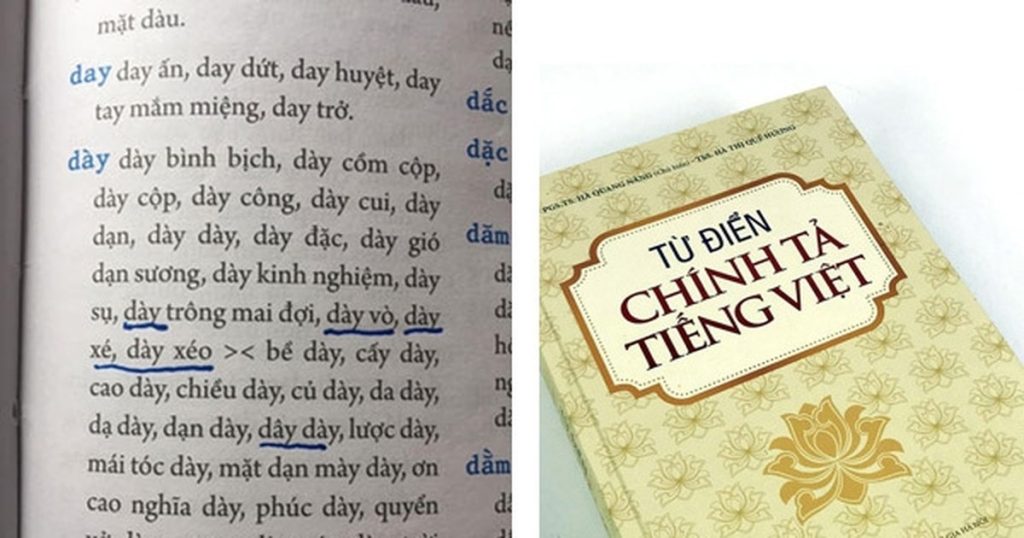For one reason or another, Vietnamese seems to be a mysterious language to many foreigners. There are so many misconceptions about the language that it’s almost easier not to begin learning because you have no idea what you’re getting yourself into!
In terms of practical use, it may not seem a natural choice since it doesn’t give you access to a big geographic part of the world. Career prospects are also pretty limited.
Despite this, there are many good reasons to learn Vietnamese. Here in this article, you will discover why it can be a superb choice and its benefits.
Vietnam is home to Halong Bay, caves, beaches, temples, and cities like Hanoi, Hoi An, Ho Chi Minh City, and many more famous places. It combines ancient history, diverse culture, and beautiful landscapes.
The number of tones can be daunting and the grammar doesn’t appear to make sense. However, there are many reasons why Vietnamese is actually easier than it seems! Today we’ll look at 19 of these reasons:
1. Pronunciation Is Much More Straightforward
The best news first: Vietnamese has no tones! That’s right, tones aren’t a part of Vietnamese so you don’t have to worry about that. Another good thing is that there are only a handful of consonants in the language: “b, ch, d, g, h, k, l, m, n, ng,” and “r,” with a few others thrown in for good measure. This means that you won’t have to deal with the frustration of needing to learn how to produce so many different sounds, as can be the case in Mandarin or Cantonese.

Another big difference is that Vietnamese doesn’t have any silent letters! “Qu” is always pronounced as “qu,” never “kweh.” “Ph” is always pronounced as “f,” never “puh.”
Vietnamese also has no diphthongs like “ao” or “oi” (though some dialects do). Say the English word, go , and then say it again, but this time dragging out the vowel sound. This would be written in Vietnamese as something like, gao . The word doesn’t exist in Vietnamese! You don’t need to worry about adding extra letters like you do in French (bonjour) or Spanish (buenos dias), simplifying your life quite a bit.
2. There Is No Tense/Aspect Like In English… But Learning Tenses Isn’t Hard At All!
English tenses are very complicated because there are so many. Depending on when something happened, you need to use a different verb tense. This can be quite confusing for English speakers learning Vietnamese because there is no real tense in the language.
See, Vietnamese doesn’t differentiate between the past and present like we do in English. Instead of saying you did something or you’re doing something, we say that an action happened and is happening. The only exception to this rule would be if you wanted to emphasize that it’s a one-time thing and not a repeated action (though sometimes even then it doesn’t happen). But otherwise, things just… happen .
As for future actions? Well, they don’t exist in Vietnamese! We basically use “will” as a way to express future actions, as in “I will do this.” There is no verb like “to be” which changes form depending on if it’s present or future.
Besides those two differences, tenses are actually quite easy to learn! If you’re an English speaker and know how to use the different suffixes and particles (which we’ll discuss later), then you don’t need to memorize any new verbs or special rules for when they change. This is one of the reasons that Vietnamese speakers find learning Spanish and French much more difficult than they find learning English: the tense/aspect system in those languages is so different from their own.
3. Verbs Don’t Have To Change Form Depending On Who They Are Associated With
One of the reasons that tenses can be difficult in English is because verbs change form depending on who they are associated with. For example, “I threw” would become “we threw” if there were multiple people involved.
This causes problems for English speakers learning other languages because it feels weird to have to use different forms for the same thing. It’s not so much of a problem in Vietnamese though! The language actually has two words which mean “to do.” We use one when the action is directed at someone else and another when it’s just you doing something to yourself . This means that things like “they did” or “she does” don’t exist at all in Vietnamese! Everything stays exactly as it is no matter who it’s being done to.
4. Vietnamese Doesn’t Have Any Irregular Verbs

English is notorious for having irregular verbs , which means that they don’t follow the normal rules and need to be memorized separately. For example, you would think the past tense of “do” would be “did,” but instead it’s “dove.” There are hundreds of these kinds of irregularities in English, many of them stemming from historical reasons that only really interest grammar nerds like me!
There are no irregular verbs in Vietnamese though! The language has about 20 different verb roots (out of over 200) which change when conjugating, but none of them cause any issues . They’re simply variations on the root word depending on if you want to talk about past, present, or future. This is another reason why Vietnamese speakers find learning Spanish and French harder than English, since those languages both have irregular verbs (eg. “to speak” vs “I spoke”).
5. There’s No Plural Forms For Nouns
This may seem simple but it can actually be very difficult for English speakers! The plural form of a word in English is used whenever there are multiple things or people being talked about.
For example: “One man was hit by the ball.” Here, the singular verb “was” changes to become plural so it can agree with the noun “men.” But what if we’re talking about more than one man? That’s where you would use plural nouns like “men” or “women.”
Here’s another example: “The dog is outside.” This means there’s one dog, but if there are more than one, you would say something like “the dogs are outside” instead.
What makes this difficult for English speakers is that they have to remember whether the noun is singular or plural. Vietnamese doesn’t have any of these kinds of problems though—nouns remain the same no matter how many people or things are being referred to!
6. Vietnamese Doesn’t Make A Distinction Between Singular And Plural Nouns
Again, this may seem simple at first, but it can actually be very confusing for an English speaker learning Vietnamese! In English, we use the singular “guys” to talk about one person (who might be male), but we would use the plural word “people” if there were more than one of them. Here’s an example:
This is because nouns in English are either considered to be singular or plural depending on how many people are being talked about. If it’s not clear whether something is singular or plural, then you can usually tell by the verb that goes with it!
But this is where it gets tricky for Vietnamese learners—you never need to decide between using a singular or plural noun, because they’re already both at the same time! This occurs in most languages , although some others go even further and use only plurals with no singular form at all!
7. Vietnamese Doesn’t Have Singular And Plural Forms Of Verbs Either
Just like with nouns, verbs remain exactly the same no matter what number of people or things they’re describing. This means there’s no difference between “they walk” and “we walk,” for example. However, everything is still kept as singular.

